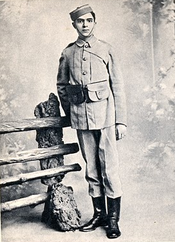Lucknow Pact refers to an agreement reached between the Indian National Congress and the Muslim League at the joint session of both the parties, held in Lucknow, in the year 1916. Muhammed Ali Jinnah, then a member of the Congress as well as the League, made both the parties reach an agreement to pressure the British government to adopt a more liberal approach to India and give Indians more authority to run their country, besides safeguarding basic Muslim demands. After the unpopular proposal for partition of Bengal which was dropped , Jinnah approached the League to make it more popular among the Muslim masses. Jinnah himself was the mastermind and architect of the Lucknow Pact. Due to the reconciliation brought about by Jinnah between the Congress and the League, the Nightingale of India, Sarojini Naidu, gave him the titile “the Ambassidor of Hindu-Muslim Unity”.
The Lucknow Pact also established cordial relations between the two prominent groups of the Indian National Congress – the "hot faction" garam dal led by Bal Gangadhar Tilak, and the moderates or the "soft faction", the naram dal led by Gopal Krishna Gokhale.
Reasons for the pact
When the All-India Muslim League came into existence, it was a moderate organization with its basic aim to establish friendly relations with the Crown. However, due to the decision of the British government to annul the partition of Bengal, the Muslim leadership decided to change its stance. In 1913, a new group of Muslim leaders entered the fold of the Muslim League with a much different view than their predecessors. Demand for a separate homeland was included in the objectives of Muslim League of 1913 which brought Muslims and Hindus closer. So, for the first time in history, Muslim League and Indian National Congress worked together to present set of demands to British which came to be known as the Lucknow Pact.
Muslim League and Congress
As a result of the hard work of Mr. Jinnah, both the Muslim League and the Congress met for their annual sessions at Bombay in December 1915. The principal leaders of the two political parties assembled at one place for the first time in the history of these organizations. The speeches made from the platform of the two groups were similar in tone and theme. Within a few months of the Bombay meetings, 19 Muslim and Hindu elected members of the Imperial Legislative Council addressed a memorandum to the Viceroy on the subject of reforms in October 1916. Their suggestions did not become news in the British circle, but were discussed, amended and accepted at a subsequent meeting of the Congress and Muslim League leaders at Calcutta in November 1916. This meeting settled the details of an agreement about the composition of the legislatures and the quantum of representation to be allowed to the two communities. The agreement was confirmed by the annual sessions of the Congress and the League in their annual sessions held at Lucknow on December 29 and December 31, 1916 respectively. Sarojini Naidu gave Jinnah, the chief architect of the Lucknow Pact, the title of "the Ambassador of Hindu-Muslim Unity".
Main Features
- The same method should be adopted for the Executive Councils of Governors.
- The India Council must be abolished.
- The salaries of the Secretary of State for Indian Affairs should be paid by the British government and not from Indian funds.
- Of the two Under Secretaries, one should be Indian.
- The executive should be separated from the judiciary.
- The number of Muslims in the provincial legislatures should be laid down province by province.
- There shall be self govt. in India.
- Muslims should be given 1/3 representation in Central Govt.
- There should be separate electorates for all communities until they ask for joint electorate.
- System of weight-age should be adopted.
- Term of Legislative Council should be 5 years.
- Half of the members of Imperial Legislative Council must be Indians.





.jpg)







